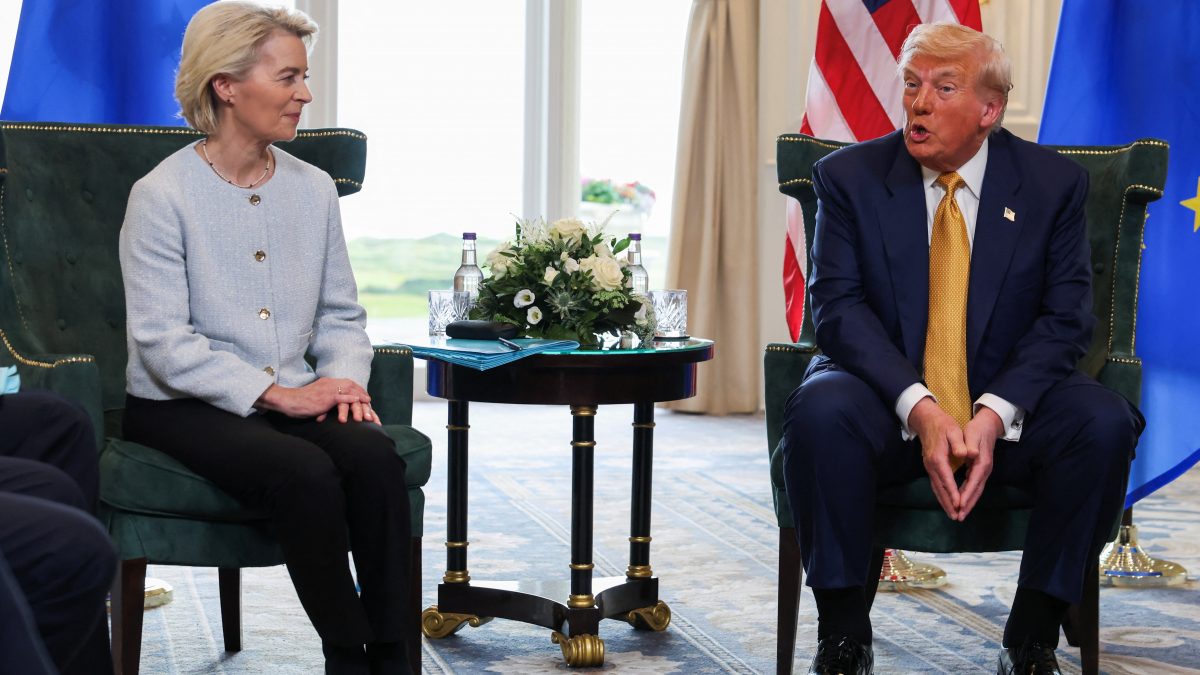US President Donald Trump and European Commission President Ursula von der Leyen met in Scotland on Sunday to push forward high-stakes trade negotiations with both sides under pressure to avert a transatlantic tariff clash before an August 1 deadline.
The talks come after weeks of intense back-and-forth between Washington and Brussels as the EU seeks to strike a deal that would shield key sectors, particularly automobiles, pharmaceuticals and industrial goods from sweeping new US tariffs.
Trump has threatened to impose fresh 30% tariffs on EU goods if an agreement is not reached by Friday, on top of existing levies including 25% on cars and parts and 50% on steel and aluminium. He has maintained that the EU has treated the US unfairly and warned that without a deal, punitive measures would go ahead.
Despite the rising stakes, Trump said the chances of a deal were “50-50”, while calling von der Leyen a “highly respected woman” and expressing hope that the meeting would be productive. Speaking from his Turnberry resort on Friday, he said that there were “20 sticking points” in the negotiations but declined to elaborate.
The EU, the United States’ largest trading partner, exported €532 billion ($603 billion) worth of goods to the US in 2024, with pharmaceuticals, auto components, and chemicals among the biggest categories. The two sides exchanged a total of €1.6 trillion ($1.8 trillion) in goods and services last year, underscoring the magnitude of what’s at stake.
Impact Shorts
More ShortsIn preparation for Sunday’s talks, EU negotiators consulted with Japanese officials, whose recent deal with Washington secured a baseline tariff of 15%. Trump has been aiming for similar trade shakeups globally, having already clinched agreements with the UK, Japan, Indonesia and Vietnam, though his administration has fallen short of delivering on its “90 deals in 90 days” pledge.
With the clock ticking, both Trump and von der Leyen are hoping Sunday’s discussions in Scotland will pave the way for an agreement that could reshape one of the world’s most important trade relationships and stave off another economic confrontation.


)

)
)
)
)
)
)
)
)



